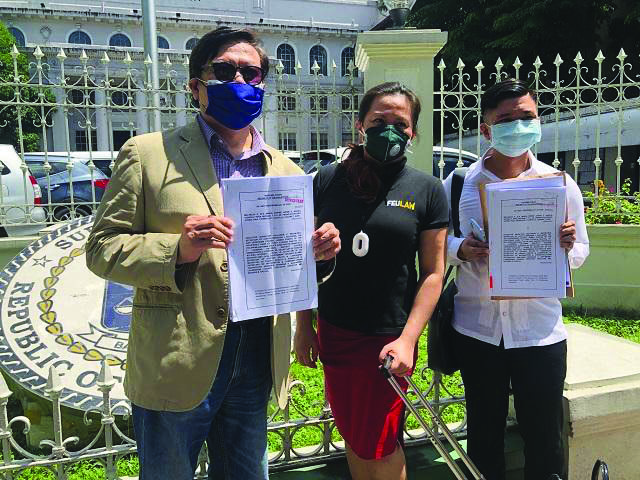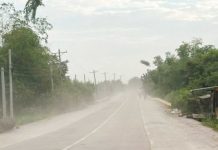
MANILA – The Supreme Court has ordered respondents – in this case, the Malacanang Palace – to submit a comment on the petitions questioning the constitutionality of the newly-signed Anti-Terrorism Law.
During its en banc session, the High Court justices tasked Executive Secretary Salvador Medialdea to answer the temporary restraining order of the petitioners to stop the implementation of the measure.
As of Tuesday afternoon, there were four petitions filed before the Supreme Court against the Anti-Terrorism Law. The High Court justices have decided to consolidate the said petitions.
Meanwhile, Presidential spokesperson Harry Roque said the newly-signed anti-terrorism law was created to curb the terrorists and it does not include those who were criticizing the government.
There should have “clear and present danger” before a person can be arrested and detained for inciting terrorism, according to Roque.
“Siguro, I will phrase it differently. Terrorists, beware of the anti-terror law. Iyong mga hindi naman po mga terorista, huwag po kayong mag-alala, sapat-sapat po ang mga safeguards sa batas mismo at sa ating umiiral na rules of court para pangalagaan po ang karapatan ng kalayaan at karapatang mabuhay,” Roque said.
“Kapag sinabi po ng leader ng Abu Sayyaf, pugutan ng ulo ang mga Kristiyano, iyan po ay ehemplo ng inciting to terrorism,” he added.
Roque said not all remarks are actionable because jurisprudence on free speech should also be applied and if the threats were made by an individual with no involvement with any terrorist group, there would be no clear and present danger to deter.
“Hindi naman po lahat ng salita ay actionable, kinakailangan ang nagsasalita ay may kapangyarihan na bigyan ng riyalidad iyong kaniyang sinasabi ‘no,” the Palace spokesperson said.
“Sapat-sapat po ang remedyo, nandiyan na po iyan bagamat may bagong batas, lahat po iyang mga writs na ginawa po ng ating Korte Suprema at nasa ating Saligang Batas ay patuloy pa rin pong magagamit,” he added.
Under the law, persons who shall threaten to commit terrorism, and those who will propose any terroristic acts or incite others to commit terrorism shall suffer imprisonment of 12 years.
Suspected persons can be detained for 14 days without a warrant of arrest with an allowable 10-day extension. A 60-day surveillance on suspected terrorists can also be conducted by the police or the military, with an allowable 30-day extension./PN






